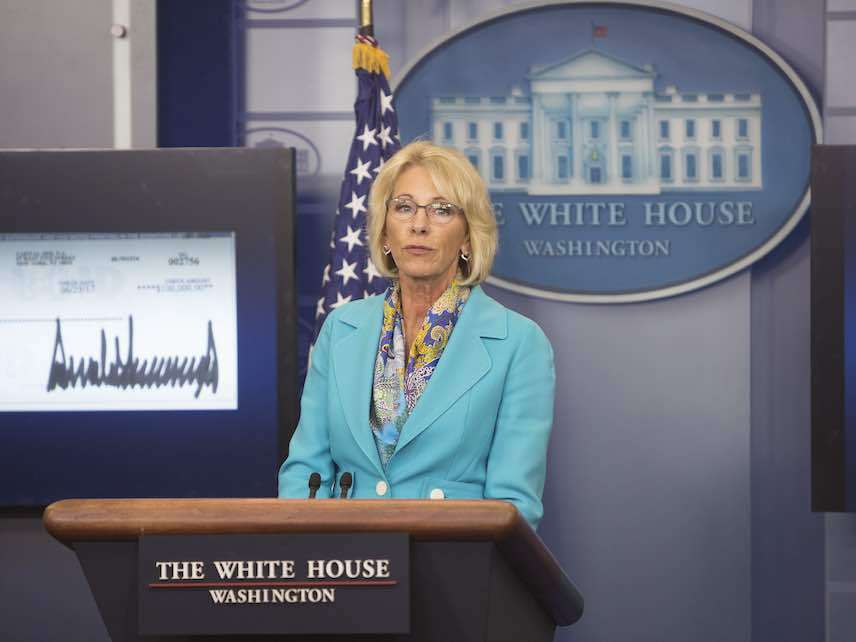Lawyer: In Campus Rape Disputes, the Accused Should Not Be Presumed Innocent
Betsy DeVos needs to reform Title IX.

The mask slips once again. Laura Dunn, a lawyer and prominent advocate for sexual assault victims, admitted that Title IX—the federal statute behind the Education Department's efforts to compel universities to adjudicate sexual assault—does not require investigators to presume that accused students are innocent.
Dunn thinks that's a good thing.
"A presumption of innocence advantages the accused only, and Title IX requires equity," Dunn wrote in an email to Inside Higher Ed. "No presumption should be made either way, and schools should engage in an inquisitorial process to determine the truth rather than artificially favor the accused going into it."
The presumption of innocence is considered so fundamental to principles of justice that it is enshrined by the United Nations' Universal Declaration of Human Rights. In the U.S., the Supreme Court has held that the presumption of innocence is implicit in the Bill of Rights. When an adjudicator is acting at the behest of the federal government, and wielding the power to ruin the accused person's life, it stands to reason that the presumption of innocence should enter the picture. But for some reason, people like Dunn think young people should be stripped of this right when they set foot on a college campus.
Dunn was responding to the release of a report by the Foundation for Individual Rights in Education; the report determined that three-quarters of America's elite universities do not guarantee students the presumption of innocence in sexual misconduct proceedings. All but 10 of the 53 institutions FIRE evaluated scored a D or F rating on the robustness of their due process protections. According to FIRE:
Colleges today investigate and punish offenses ranging from vandalism and housing violations to felonious acts of sexual assault, taking on the responsibility—often at the behest of the federal government—to punish offenses that are arguably better left to courts and law enforcement. But this willingness to administer what is effectively a shadow justice system has not been accompanied by a willingness to provide even the most basic procedural protections that should accompany accusations of serious wrongdoing.
Many civil libertarians of assorted stripes now believe that the Obama-era federal guidance relating to Title IX has stripped students of their due process rights while chilling freedom of expression. Several law professors at Harvard University just released a joint statement asking the Education Department to revisit the guidance. "Now is the time to build in respect for fairness and due process, academic freedom, and sexual autonomy," wrote Harvard's Janet Halley.
President Donald Trump's secretary of education, Betsy DeVos, is expected to announce changes to the department's Title IX approach soon. If campus officials are going to be involved in sexual misconduct disputes at all, the new policy should at least fully protect the due process rights of all parties involved.


Show Comments (47)